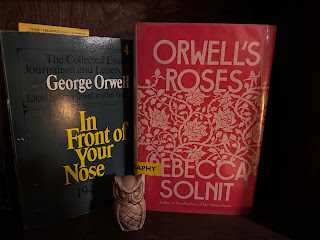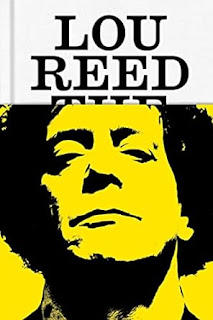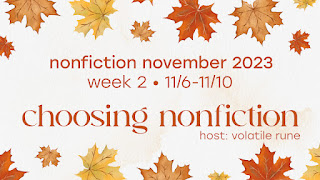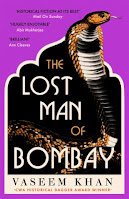"...he is, surely, among all the truly great writers of this world, the least read in the English-speaking world."
-A. N. Wilson, Goethe: His Faustian Life
 |
| The owl stands tall. |
Is that true? It might be! But I've been trying to do my part.
Biography
Johann Wolfgang Goethe (not yet von Goethe) was born to a upper middle class family in Frankfurt in 1749; he went to Weimar in 1775 for what was supposed to be a visit to the duke, Karl August; it became his permanent residence until he died.
Karl August invited him because at 26 Goethe was already celebrated. His first play, Götz von Berlichingen, was a hit in Germany, but his novel, The Sorrows of Young Werther of 1774, made him famous across Europe. Napoleon, in the middle of his wars, stopped to meet Goethe, and claimed to have read Werther six times.
When Goethe shows up in Weimar, Karl August has just turned eighteen and taken over after his mother's regency. He's still a bit of a wild child, and Goethe's first role in Weimar is to provide amusements for the young duke. The most innocent of these is Goethe teaching Karl August how to ice skate; how un-innocent these get is still argued about, but Karl August was pretty much the whole of his life a notorious womanizer. Nevertheless, Karl August's formerly reigning mother, Anna Amalia, is also fond of Goethe, so much so that it was sometimes rumored that Goethe had an affair with Anna Amalia, though neither of those biographies shown above believed it true.
In time both Goethe and Karl August steady down, and Goethe becomes a useful privy councillor to the Weimar duchy. The finances there are appalling--Goethe improves them: he regularizes taxation and reforms (shrinks) the army; his attempts to revive an abandoned silver mine in the territory are less successful. He serves on a commission to improve the roads, which is supposed to help the economy as well.
But of course he's Goethe, and anyway Anna Amalia was interested in making the duchy a cultural center. Goethe takes over the official court theater, writing plays, directing, acting, but also bringing in other talent, mostly notably Friedrich Schiller in 1787. Goethe and Schiller, though not immediately, become great friends, deeply influential on each others' work, until Schiller's death from tuberculosis in 1805.
There had long been a university at Jena, fifteen or so miles from Weimar, but still in the duchy. It's Goethe who brings in the scholars that make it one of the great German universities. Not just Schiller, but also Fichte, Schlegel, Hegel. I read a
book about that a couple of years ago.
Goethe travels--but not much really. Switzerland, back home to Frankfurt (though not often). Most famously to Italy, twice: it's the first trip (1786-1788) that is the most important; he spends a long period in Rome, living somewhat incognito, though he also gets to Naples, where he meets
William and Emma Hamilton. He goes a second time to Venice to escort Anna Amalia back to Weimar after her own Grand Tour.
After his first trip to Rome he meets Christiane Vulpius, the daughter of impoverished pastor who comes to him seeking help for her brother. She's not the sort of woman somebody like Goethe should marry, but they start living together. She bears him several children, though only the eldest, named August in honor of the duke, survives to adulthood. The court is horrified (well, not the duke himself, who only suggests Goethe keep Christiane out of sight) but not, as it turns out, Goethe's mother, who though she scarcely meets Christiane, likes her. After the battle between Napoleon and Prussia on the outskirts of Jena in 1806, Christiane famously defends Goethe's house from the victorious marauding French troops, and Goethe decides, propriety be damned, I'm marrying that woman. And does.
He writes, you know, some famous works. Not just Werther and Faust, both of which I've read, though not recently, but also The Roman Elegies, Dichtung und Wahrheit, which is his autobiography until his move to Weimar, and a collection of poetry, West-Eastern Divan.
Goethe is ennobled, becoming von Goethe, and dies in 1832 at the good age of 82. But this is after his duke, his great friend Schiller, his wife, and his son August, the only child of his to survive until adulthood have all died. (His daughter-in-law and his grandchildren were alive at his death.)
Biographies
OK, you may not really need to read three biographies of Goethe, but that's what I did. The first one I finished was by A. N. Wilson,
Goethe: His Faustian Life. Wilson is British, a prolific man of letters, who admirably makes his way by writing--with panache--serious books for adults. This was a good biography of Goethe. Wilson was occasionally perverse. Was Goethe a drunk? Hmm, possibly. No doubt he drank more than was good for him. Was Goethe bisexual? Nobody else seems to think so, and the one poem from the
Venetian Epigrams which Wilson quotes and might suggest it, is pretty clearly written in imitation of ancient models. The amusing thing about Wilson's biography is the emphasis he puts on how Goethe would have been a nobody had he not wrapped everything up at the end of of his life. Maybe not entirely true? There was already
Werther and the first part of
Faust. It is true the second part of
Faust, Dichtung und Wahrheit, and the ending of
Wilhelm Meister were only completed in the last years of his life, but this did feel a bit like Wilson (now 74) writing more about himself than Goethe.
Still, I'd cheerfully recommend this biography of Wilson's--it's recent, 2024, it's punchy, it's got the facts--except there's a better choice. So unless you're reading three...
The second one I finished was Goethe's autobiography. I've been calling it by its German title, Dichtung und Wahrheit, which is usually translated as Poetry and Truth, but I read it in a 1897 translation by John Oxenford which titled it Truth and Fiction. (You can find it on Project Gutenberg.) It covers the years from Goethe's birth until his move to Weimar at age 26. It's pretty fascinating. Goethe is interested in education--Rousseau was in the air, as weird as he is, Julie and Emile, and gets a discussion in Dichtung und Wahrheit--and the book is about Goethe's education, not just in schools, but in life. Was he going to be a lawyer? Or was he going to be a poet? I thought Oxenford's translation of the prose was good; when Goethe was trying to convey something that depended on a particular German word, Oxenford handled it with particular sensitivity. But Goethe is also a poet, and has a habit of embedding poetry in his prose narratives, and, let us just say, it may have been as well Oxenford did not use the word Poetry in his title of the book. A fascinating work, covering a bit over a quarter of Goethe's life, but I would hope there's a better translation out there.
The last one I finished is the great one. Rüdiger Safranski's Goethe: Life as a Work of Art was celebrated when it came out in Germany in 2013, and was translated into English by David Dollenmeyer in 2017. Dollenmeyer's translation strikes me as superb and he has no need to avoid the word Poetry:
Wanderer's Night-Song
Peace lies over
All the peaks.
In all the trees
You sense
Hardly a breath;
The little forest birds fall silent.
Wait, and soon
You too will rest.
-Goethe (tr. David Dollenmeyer)
I
featured this in a couple of other translations a few weeks ago after finishing Wilson's biography. I now think I like Dollenmeyer's version best.
Safranski, too, has a thesis; it's suggested by his subtitle,
Life as a Work of Art. He writes, "Goethe returns from Italy with the idea of being a sovereign human being," as if what made Goethe important was his self-actualization, reaching the top of the
Maslow pyramid. He probably did reach the top of the pyramid. Still I more think what makes Goethe interesting is that he wrote a bunch of great books. (See above.)
One amusing thing I learned is that Goethe thought the portrait of him by Angelica Kaufmann was too flattering and didn't really look like him. Too bad. I speculated in my
post on
Wilhelm Meister's Apprenticeship that Wilhelm's adventures were helped because he looked the Goethe of this portrait. Maybe even Goethe didn't look like the Goethe of this portrait...
Anyhoo... Safranski's is the biography of Goethe to read at the moment as far as I can tell, and in Dollenmeyer's translation for those of us who aren't up to reading it in German.
This post is now in serious tl;dr territory and I didn't even get to those two books of poetry. Maybe I'll come back to Roman Elegies at some point. So why all this Goethe? (And the other German things on the blog this year:
Heinrich Heine, Joseph Roth,
Stefan Zweig.) We've got a trip planned to Germany at the end of September--Yay!--and we're concentrating on the southeast, Weimar, Leipzig, Dresden.
Do you like immerse yourself in a place in advance by reading?
































